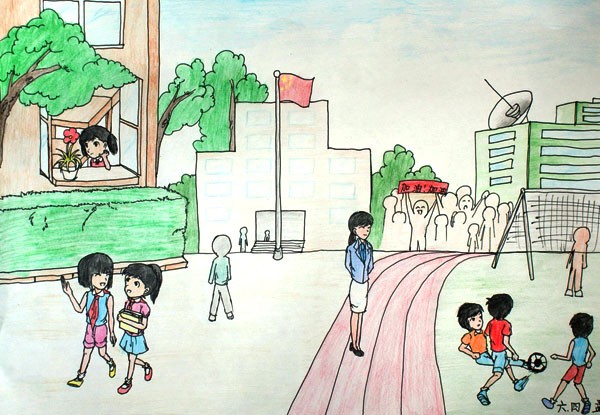The Iron Lady, review: 早在宣布梅丽尔·斯特里普(饰演撒切尔夫人的那一刻,奥斯卡就已经为她预留下了一个提名席位。今这部传记片不会如流水账似的把撒切尔夫人的生平全都展现出来,而是重点聚焦1982年马岛战争期间撒切尔度过的17天,这17天也是她整个政治生涯的转捩点。吉姆·布劳德本特将在片中扮演撒切尔夫人的丈夫丹尼斯,亚历珊德拉·罗奇和哈里·劳埃德将扮演年轻时期的玛格丽特和丹尼斯。《铁娘子》将由著名的奥斯卡推手温斯坦公司发行,2011年12月30日在北美上映。
Meryl Streep's performance in The Iron Lady is astonishing, writes Robbie Collin.
"One of the great problems of our age is that we’re governed by people who care more about feelings than they do about thoughts and ideas," says Margaret Thatcher in The Iron Lady. "Now, thoughts and ideas – that’s what interests me." It’s a pivotal line in director Phyllida Lloyd and screenwriter Abi Morgan’s absorbing, exhilarating biopic of the United Kingdom’s only female prime minister, but the film itself doesn’t agree. The Iron Lady does not pick over thoughts and ideas for an hour and 45 minutes: Lloyd and Morgan are fascinated by who their subject was and is, and rather less by what she stood, and continues to stand for. Personality politics might have been anathema to Margaret Thatcher MP, but this film is propelled by the sheer power of her presence.
It begins with a playful shot of a bottle of milk being taken – perhaps snatched – from the shelf of a London corner shop. The elderly Lady Thatcher (Meryl Streep) has left her house to buy groceries; fumbling for change in her handbag, she seems like an exile from another era. Over breakfast, we see her talking to her husband Denis (Jim Broadbent) – except Denis died in 2003. A muddled conversation with a young aide about a concert takes her back to a theatre trip at which a young Denis (Harry Lloyd, every bit as charming here as he was as Herbert Pocket in the recent Great Expectations serialisation) playfully presented her with a sugar mouse. The film’s structure is confused, but deliberately so: events in Lady Thatcher’s present trigger vivid memories of her past. Shaping a plot around a real person’s mental decline sounds heartless, but here it’s been done compassionately, and in a way that makes narrative sense. The film has six decades of history to get through, from the Falklands War to the Poll Tax riots and the Grand Hotel bombing – better this than the kind of 'Twenty Most Important Political Moments’ checklist format that hampered Oliver Stone’s recent George W. Bush biopic.
The present-day scenes also serve as a vital coda to one of The Iron Lady’s central threads: the personal cost of power. Lloyd and Morgan want us to appreciate just how much this grocer’s daughter from Grantham had at stake when she entered the overwhelmingly stuffy, overwhelmingly male world of British politics. When Thatcher arrives at the House of Commons for the first time after being elected MP for Finchley in 1959, there’s a telling shot of her distinctive blue hat bobbing alone in a sea of half-bald heads. When a Labour member sneers that she "doth screech too much" following a Commons speech, she responds by employing a voice coach, leading to a stagy 'training montage’ in which Thatcher’s vowels and hairstyle are given a bouffant boost under the eye of Gordon Reece (Roger Allam). There’s a glimpse of camp humour here that seems to have been toned down elsewhere in the film: a line from the trailer, in which Thatcher asks a dining room full of European dignitaries "Gentlemen, shall we join the ladies?" has been lost in the edit.
Perhaps Lloyd was worried that her film had to be serious enough – she is, after all, the director whose only previous film is the £400 million-grossing, pro-celebrity karaoke tournament Mamma Mia. To say The Iron Lady is better-directed than Mamma Mia isn’t much of a compliment, but it’s true, and a few clunky images aside (a close-up of Thatcher’s feet treading on fallen rose petals as she leaves Downing Street is a stupid person’s idea of a clever shot), the film moves fluidly and feels polished and authentically cinematic.
But then, perhaps I’ve just been dazzled by Streep. In a career full of great performances, this is surely one of her greatest: the changes in her voice and posture as she moves from youthful, fire-bellied politician to elderly stateswoman develop so smoothly, you could plot them on a bell curve. As time passes, her voice slows and deepens, the corners of her mouth and eyes turn down, her walk loses speed but not purpose. Extraordinarily, at both screenings of The Iron Lady I’ve attended, an audience member has started heckling Streep as if she actually is Thatcher, and while this says something about the hecklers, it says just as much about the quality and accuracy of her work.
Awards season glory for Streep is a given, but the rest of the cast are hardly slacking: Broadbent adds lashings of pathos; Olivia Colman is an unobtrusive delight as Carol Thatcher (her brother Mark appears only as a child and on the other end of a long-distance phone call); Alexandra Roach plays the young Margaret Thatcher with grace and subtlety; and as Geoffrey Howe, Anthony Head can be sensationally dead-sheep-like when it counts.
Some viewers may be disappointed that a Thatcher biopic lacks an explicit political agenda, but the film succeeds as a drama for that very reason. Lloyd and Morgan have no intention of immortalising their subject: in fact, they do just the opposite, which those with an axe to grind will find even less palatable. They make her fully human.







文档为doc格式

 本文地址:
本文地址: 



